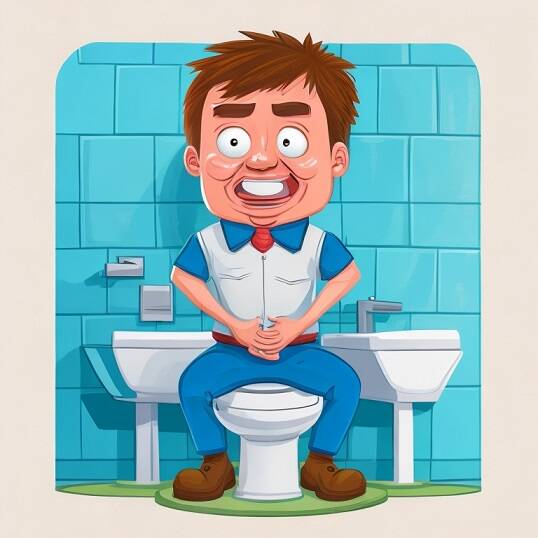Hemorrhoids are a common medical condition that affects a significant portion of the population.
While they can be uncomfortable and sometimes painful, understanding the causes, symptoms, and treatment options can help individuals effectively manage and alleviate the discomfort associated with hemorrhoids.

What are Hemorrhoids?
Hemorrhoids, also known as piles, are swollen blood vessels located in the rectum or anus. They can occur internally within the rectum or externally around the anus. Hemorrhoids can be classified into various types based on their location and severity.
Types of Hemorrhoids
Internal Hemorrhoids
Internal hemorrhoids are located inside the rectum and are usually painless. They are characterized by bleeding during bowel movements and may protrude or prolapse through the anus.
External Hemorrhoids
External hemorrhoids are situated under the skin around the anus. They can cause discomfort, itching, and pain. Thrombosed external hemorrhoids occur when blood clots form within the external hemorrhoidal veins, leading to severe pain and swelling.
Thrombosed Hemorrhoids
Thrombosed hemorrhoids are external hemorrhoids that have developed blood clots. This condition can cause intense pain and requires immediate medical attention.
Causes of Hemorrhoids
Hemorrhoids can develop due to several factors, including:
Straining during Bowel Movements
Straining during bowel movements, often caused by constipation, can put excessive pressure on the veins in the rectal and anal area, leading to the development of hemorrhoids.
Chronic Constipation or Diarrhea
Frequent episodes of constipation or diarrhea can contribute to the formation of hemorrhoids. Straining to pass hard stools or experiencing increased bowel movements can irritate the anal area and lead to hemorrhoid development.
Pregnancy
Pregnancy puts increased pressure on the pelvic veins and can lead to the development of hemorrhoids. Hormonal changes during pregnancy can also contribute to the enlargement of hemorrhoidal veins.
Obesity
Being overweight or obese can put extra pressure on the veins in the lower rectum and anus, increasing the likelihood of developing hemorrhoids.
Prolonged Sitting or Standing
Sitting or standing for extended periods can impede blood flow and cause blood to pool in the veins of the rectal area, contributing to the development of hemorrhoids.
Symptoms of Hemorrhoids
Hemorrhoids can present a range of symptoms, including:
Rectal Bleeding
One of the most common signs of hemorrhoids is rectal bleeding. Blood may appear on toilet paper, in the toilet bowl, or on the surface of stool.
Itching and Irritation
Hemorrhoids can cause itching and irritation in the anal area. This discomfort is often exacerbated by moisture and friction.
Pain or Discomfort
External hemorrhoids can be painful, especially when sitting, walking, or during bowel movements. Internal hemorrhoids, on the other hand, are typically painless unless they prolapse or thrombose.
Swelling or Lump Formation
Swelling or the formation of a lump around the anus may indicate the presence of hemorrhoids. These lumps can be sensitive to touch and may cause discomfort.
Diagnosing Hemorrhoids
To diagnose hemorrhoids, a healthcare professional may perform the following:
Physical Examination
A physical examination of the rectal area will be conducted to assess for the presence of external hemorrhoids, internal hemorrhoids, or any other abnormalities.
Visual Inspection
The doctor may visually inspect the anus and rectum using a specialized instrument called an anoscope. This allows them to view internal hemorrhoids and assess their severity.
Digital Rectal Examination (DRE)
A digital rectal examination involves the doctor inserting a gloved, lubricated finger into the rectum to check for any abnormalities, including internal hemorrhoids.
Anoscopy or Sigmoidoscopy
In some cases, a more extensive examination may be required to evaluate the rectum and lower colon. This can be done through anoscopy or sigmoidoscopy, which provide a more detailed viewof the area.
GuT Vita – For better gut health, constipation, IBS and hemorrhoids!
Treating Hemorrhoids
The treatment of hemorrhoids depends on their severity and the symptoms experienced. The following options may be considered:
Lifestyle Changes
Lifestyle modifications can help alleviate the symptoms of hemorrhoids and prevent their recurrence. These include adopting a high-fiber diet, maintaining proper hydration, engaging in regular exercise, avoiding straining during bowel movements, and practicing good toilet habits.
Topical Medications
Over-the-counter creams, ointments, and suppositories containing hydrocortisone or witch hazel can provide temporary relief from itching, inflammation, and discomfort associated with hemorrhoids.
Procedures and Surgeries
In cases where conservative measures are ineffective, procedures such as rubber band ligation, sclerotherapy, infrared coagulation, or surgical removal may be recommended by a healthcare professional.
Home Remedies
Several home remedies can help alleviate the symptoms of hemorrhoids. These include warm sitz baths, applying ice packs, using moist wipes or pads, and avoiding excessive wiping or scrubbing of the anal area.
Prevention of Hemorrhoids
Taking preventive measures can significantly reduce the risk of developing hemorrhoids. Consider the following:
High-Fiber Diet
Consuming a diet rich in fiber promotes regular bowel movements and prevents constipation, reducing the likelihood of hemorrhoid formation.
Hydration
Drinking an adequate amount of water throughout the day helps maintain soft and well-formed stools, preventing strain during bowel movements.
Regular Exercise
Engaging in regular physical activity improves bowel function and promotes healthy blood circulation, reducing the risk of hemorrhoids.
Avoiding Straining
Avoid straining during bowel movements by responding to the natural urge to have a bowel movement promptly.
Proper Toilet Habits
Maintain proper toilet habits by avoiding excessive time spent on the toilet, using a squatting position, and gently wiping the anal area with soft, moist toilet paper or using a bidet if available.
When to Seek Medical Attention
While hemorrhoids can often be managed with self-care measures, there are situations where medical attention should be sought. Consult a healthcare professional if:
Rectal bleeding is persistent or severe.
The pain and discomfort from hemorrhoids become unbearable.
Hemorrhoids interfere with daily activities and quality of life.
The symptoms do not improve with home remedies or over-the-counter treatments.
There is a presence of excessive bleeding, pus, or signs of infection.
It is important to receive proper medical evaluation and guidance to ensure appropriate treatment and management of hemorrhoids.
Conclusion
Hemorrhoids are a common condition that can cause discomfort and inconvenience. Understanding the causes, symptoms, and treatment options is crucial in effectively managing hemorrhoids.
By implementing lifestyle changes, seeking appropriate medical care when necessary, and practicing preventive measures, individuals can alleviate symptoms and improve their overall quality of life.
FAQs
Are hemorrhoids a serious medical condition?
Hemorrhoids are generally not life-threatening, but they can cause significant discomfort. If symptoms persist or worsen, it is advisable to seek medical attention.
Can hemorrhoids be prevented?
While not all cases can be prevented, adopting a high-fiber diet, staying hydrated, exercising regularly, and practicing good toilet habits can reduce the risk of developing hemorrhoids.
What are the non-surgical treatment options for hemorrhoids?
Non-surgical treatments include lifestyle changes, topical medications, and minimally invasive procedures such as rubber band ligation or sclerotherapy.
Are there any complications associated with hemorrhoids?
In some cases, hemorrhoids may develop complications such as blood clots (thrombosis), prolapse, or strangulation. These conditions require medical attention.
How long does it take for hemorrhoids to heal?
The healing time for hemorrhoids varies depending on their severity and the chosen treatment. Mild cases can improve within a few days to a week, while more severe cases may take longer.
